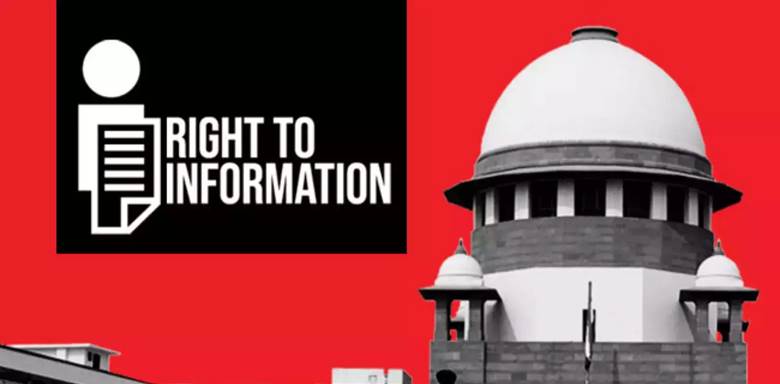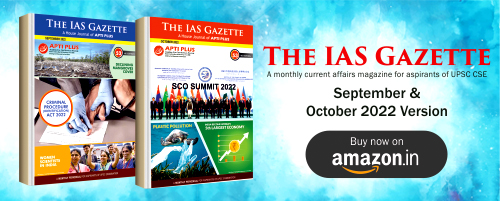Description

Copyright infringement not intended
In News
- The Supreme Court of India has launched an online portal to help citizens to file and access applications under the Right to Information (RTI) Act in matters related to the Supreme Court.
- Till now, RTI applications at the Supreme Court had to be filed only via post.
- This portal can be used only by Indian citizens to file RTI applications, for appeals and make payment for fees, and copying charges, under the Right to Information Act, 2005 (RTI Act).
- First, an applicant needs to create an account and sign in to the portal, after which they can fill out the RTI application. While registering the account, it is mandatory to provide your address proof.
- The applicant can pay the prescribed fee through internet banking, credit/debit card of Master/Visa or UPI. The fee per RTI application is ₹10.
- Any applicant who is Below Poverty Line (BPL) is exempted to pay the application fee under the RTI Rules, 2012. The applicant must attach and upload a copy of the BPL certificate issued by the government.
- By law, RTIs must be replied to within 30 days. In fact, in life and death cases, RTIs must be responded to within 48 hours.
Right to Information (RTI) Act, 2005
- The Right to Information Act requires timely responses to citizen requests for Public authority.
- There is no defined format of application for pursuing information.
- The information seeker is not required to provide reasons for asking for information.
- The main objective is to empower the citizens, promote transparency and accountability in the working of the Government, curb corruption, etc.
- Under the act, Information is any material in any form.
- It includes records, documents, memos, e-mails, press releases, circulars, orders, logbooks, contracts, reports, papers, samples, models, and data.
- A “Public authority” means any authority or body or institution of self-government established or constituted;
- by or under the Indian Constitution.
- by any other law made by the Indian Parliament.
- by any other law made by State Legislature.
- by notification issued or order made by the Government, and includes any body owned, controlled or substantially financed.
- Public Authorities publish the rules, regulations, instructions, manuals and records.
- He publishes facilities available to citizens for obtaining information.
- He provides reasons for its administrative or quasi-judicial decisions to affected persons.
- Types of information exempted from RTI
- Which would affect the sovereignty and integrity of India, the security, strategic, scientific or economic interests of the State, and affect the relation with foreign States?
- Which may constitute contempt of court.
- Anything under the Official Secrets Act, of 1923.
- Intelligence and security organisations are specified in the 2nd Schedule.

Central Information Commission
- It is the statutory body constituted under the Right to Information (RTI) Act, 2005.
- They are the final appellate authority for RTI Act.
- Central Information Commission consists of a Chief Information Commissioner and not more than 10 Information Commissioners (IC).
- They are appointed by the President on the recommendation of a committee consisting of;
- The Prime Minister.
- The Leader of the Opposition in the Lok Sabha.
- A Union Cabinet Minister nominated by the PM.
- They shall not be Members of Parliament or Members of the Legislature of any State or Union Territory as the case may be, or hold any other office of profit or connected with any political party or carry on any business or pursue any profession.
- They are not eligible for reappointment.
- The tenure, salary and allowances of the information commissioners are not fixed.
- RTI Amendment Act, 2019 has empowered the Central Government to notify them.
- They are required to submit annual reports to the Parliament through the Ministry of Personnel and Training.

https://indianexpress.com/article/explained/explained-law/supreme-court-online-rti-portal-process-8287559/
https://t.me/+hJqMV1O0se03Njk9













